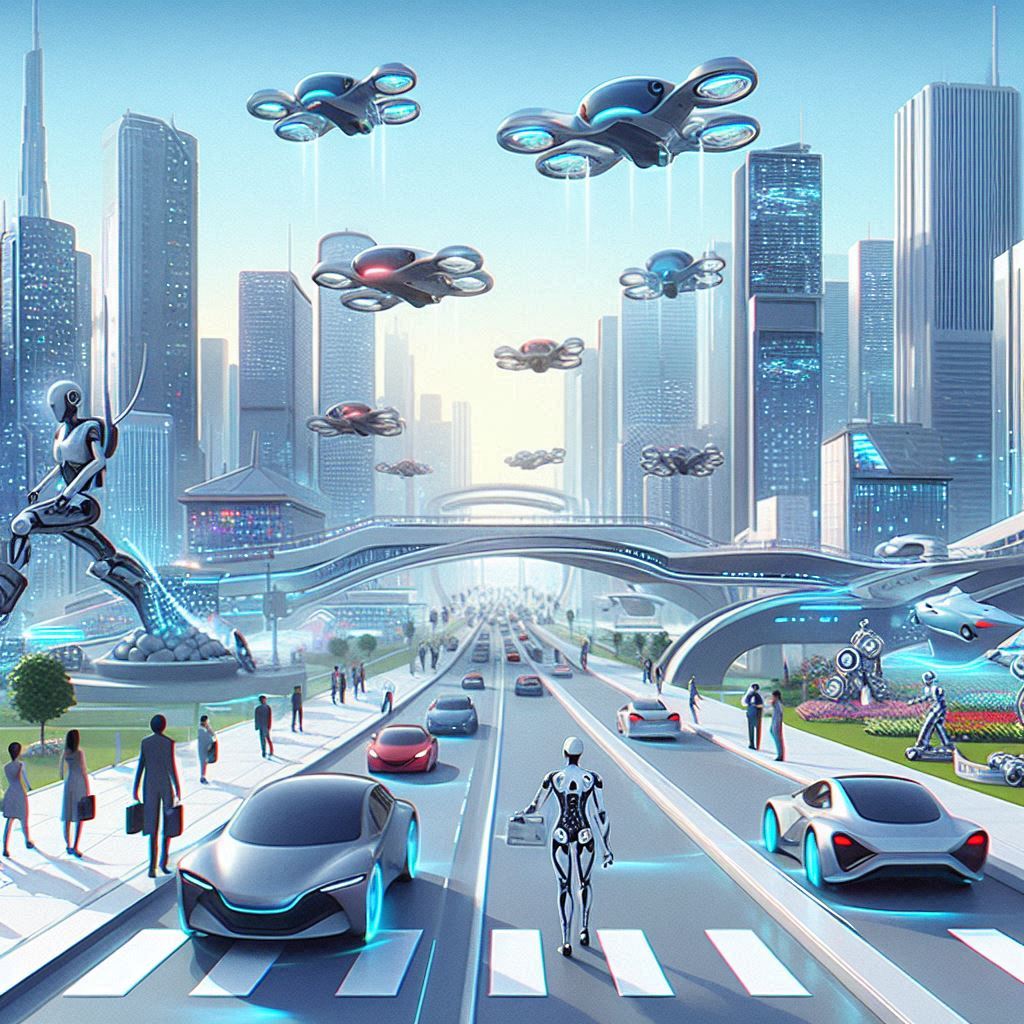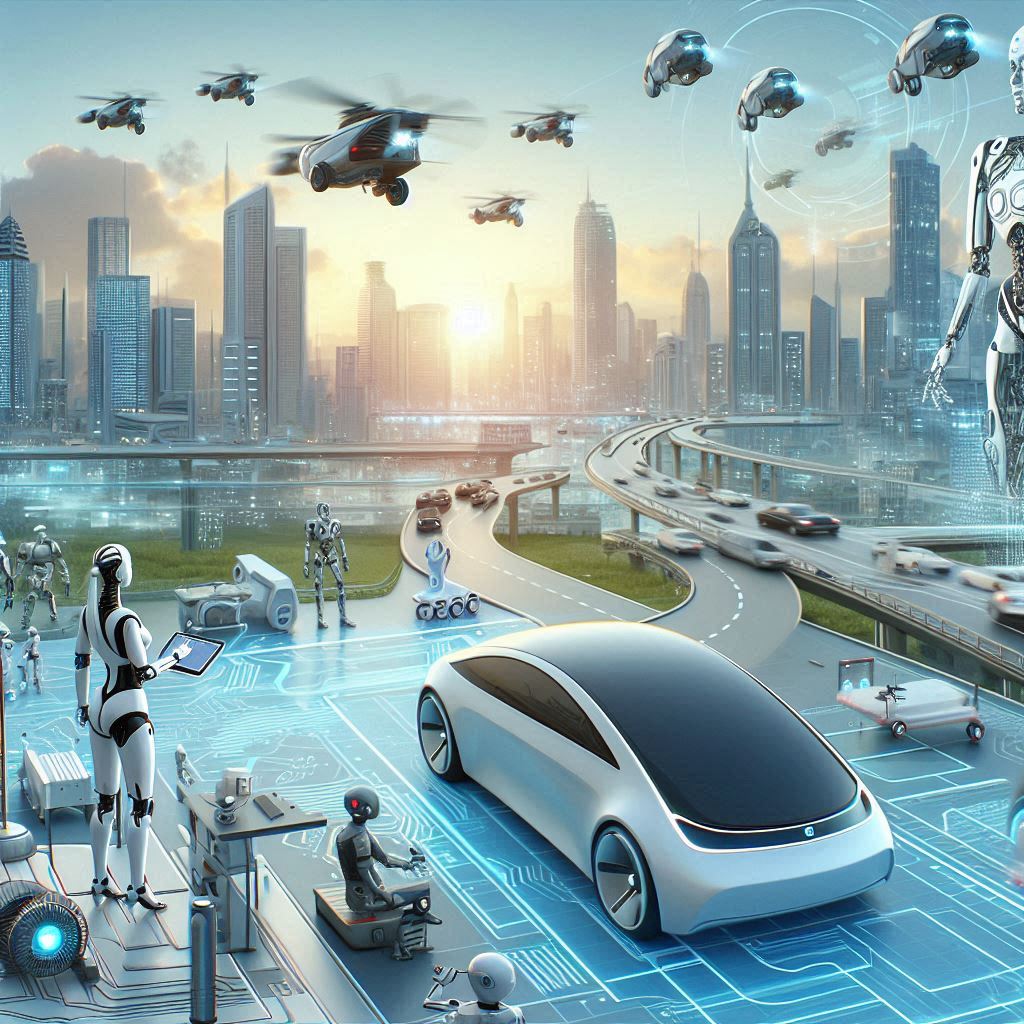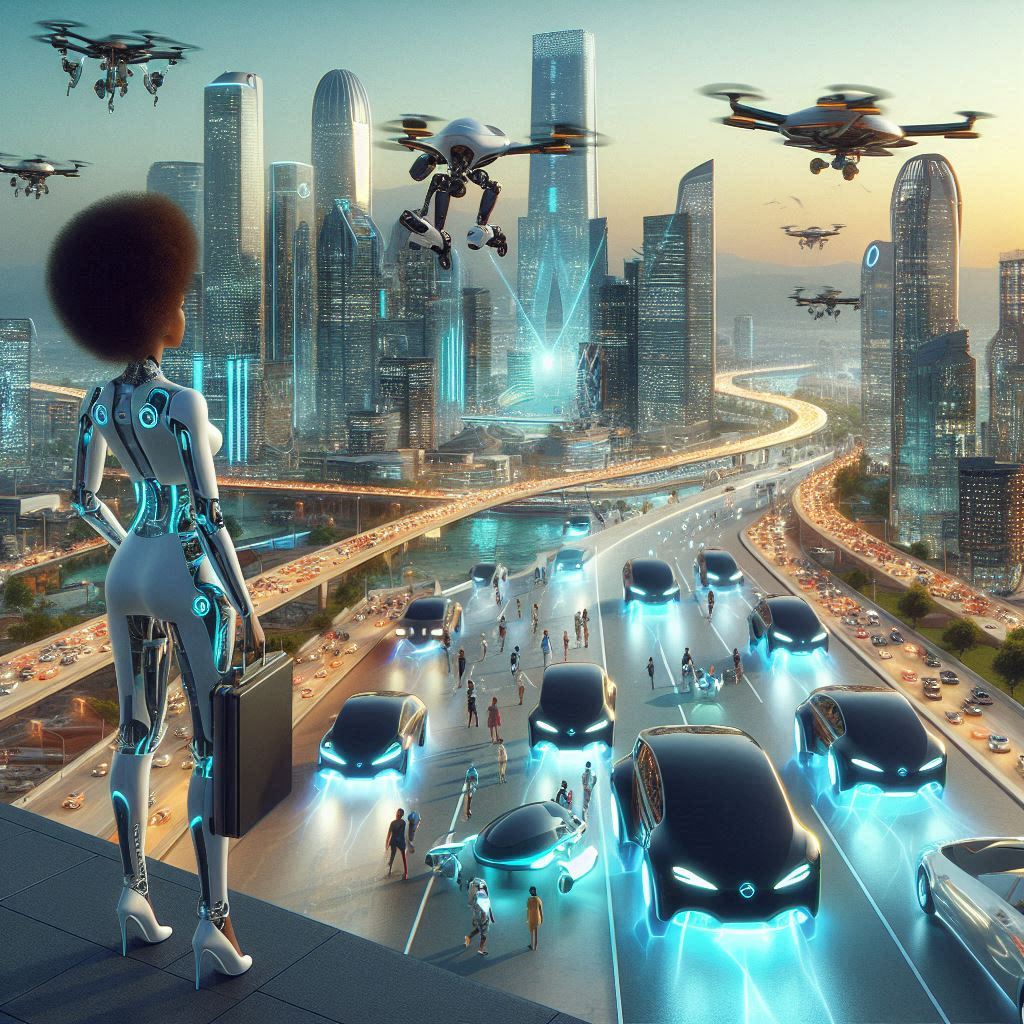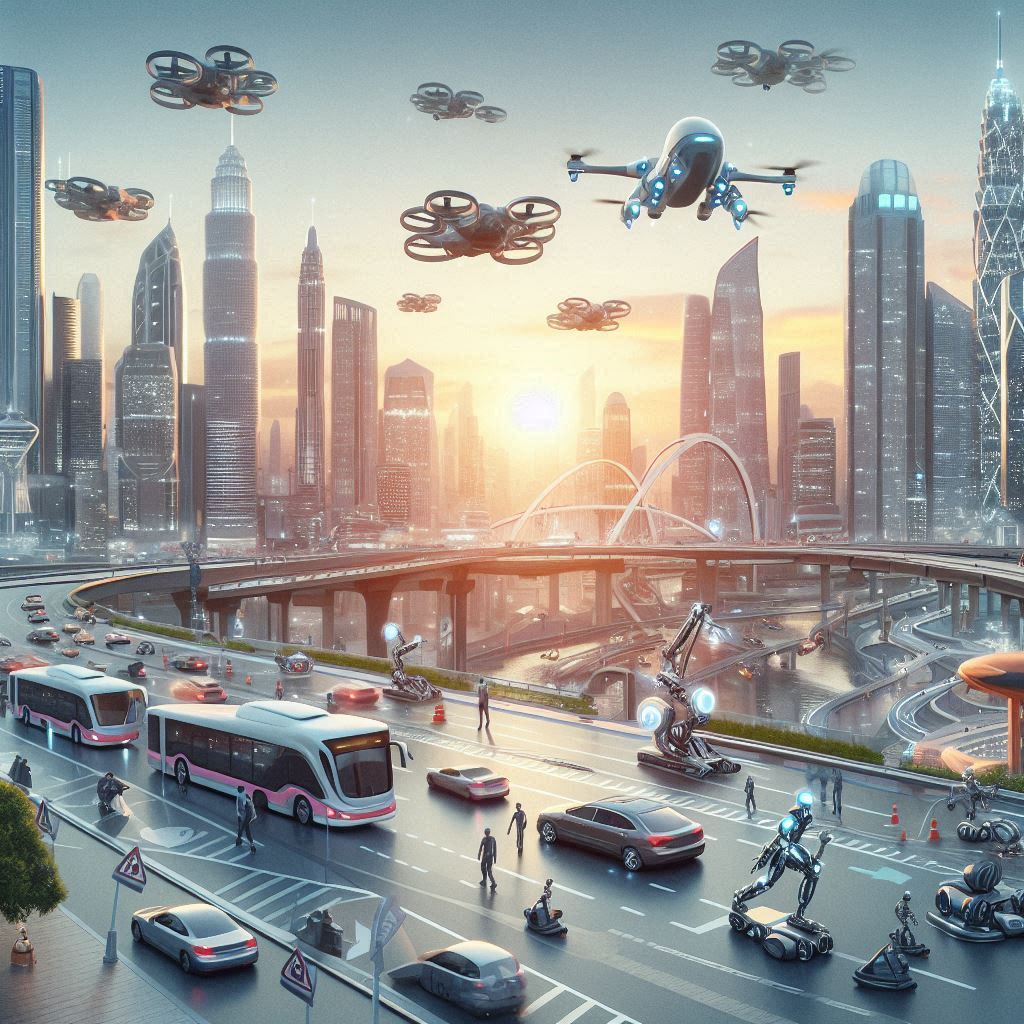AI的發展會導致那些工作消失?
AI的推出對許多行業和職業都產生深遠的影響,隨著技術的進步和自動化的普及,一些工作崗位可能會受到威脅。
首先,製造業和裝配線工人面臨著較大的風險。工業機器人和自動化設備在製造業中已經廣泛應用,這些機器能夠完成裝配、焊接、包裝等任務,大大減少對人力的需求。此外,隨著技術的不斷進步,工業機器人不僅工作效率高,而且可以全天候工作,進一步減少企業對人工的依賴。
其次,客服和電話銷售的職位會受到影響。越來越多的企業採用AI聊天機器人和自動化客服系統來處理客戶諮詢和投訴,這些系統能夠全天候提供服務,並且能夠處理大量的客戶請求。相比於人工客服,AI系統可以更快地處理重複性任務,減少企業的人力成本。
再者,資料錄入和行政助理的工作也可能被取代。AI可以自動化處理資料錄入、文檔管理、排程等任務,提高工作效率,同時減少對人工的需求。這對於那些從事重複性、程式化工作的員工來說,是一個不小的挑戰。
翻譯和語言服務也是一個受到影響的領域。雖然AI翻譯還不能完全取代人類翻譯,但在處理日常翻譯任務,尤其是文本翻譯方面,AI已經表現出色。這減少對人類翻譯的需求,特別是在簡單、重複性的翻譯任務上,AI能夠快速且準確地完成。
會計和簿記工作也面臨著被取代的風險。AI能夠自動處理財務記錄、報稅和其他會計任務,減少對傳統會計師和簿記員的需求。AI系統不僅可以處理大量資料,還能減少人為錯誤,提高財務管理的準確性和效率。
運輸和物流領域也可能受到AI的影響。自動駕駛技術的發展可能會對卡車司機、送貨司機和其他運輸工人產生重大影響。無人駕駛卡車和送貨機器人逐漸成為現實,改變傳統的運輸和物流方式。此外,無人機和自動化倉庫系統的應用,也在改變物流和供應鏈管理,減少了對人工的需求。
零售業同樣面臨相關的衝擊。自助結帳系統和無人商店的出現減少對收銀員和銷售助理的需求。AI和機器人可以完成許多重複性和簡單的任務,提高零售業的運營效率。同時,AI還能夠通過資料分析和客戶行為預測,説明零售企業制定更有效的銷售策略和庫存管理方案。
醫療領域的某些工作也可能被AI取代。AI在醫療診斷和分析方面的應用越來越廣泛,能夠説明醫生進行診斷、圖像分析和個性化治療方案制定。儘管AI不會完全取代醫生,但可能減少對一些診斷和分析人員的需求,尤其是在影像診斷和資料分析方面,AI表現出色。
法律研究和檔審查也是一個受到影響的領域。AI能夠快速處理大量法律檔和案例分析,減少對法律助理和初級律師的需求。AI在法律研究和檔審查方面效率高,準確性強,可以幫助律師更快地完成工作,提高法律服務的效率。
大量出版社及文字工作者的飯碗可能都不保,AI可以快速編寫跟搜尋資料。
儘管AI可能取代某些工作崗位,但也創造許多新的就業機會,特別是在AI開發、維護和監督方面。未來的工作市場可能會更多地需要具備技術能力、創新能力和適應能力的員工。因此,隨著AI的發展,培訓和教育的重要性將愈加突出。政府和企業需要合作,確保勞動力能夠適應這一變化,提高其技能,以迎接AI帶來的挑戰和機遇。
The introduction of AI has had a profound impact on many industries and professions. As technology advances and automation becomes more prevalent, some jobs may be at risk.
Firstly, manufacturing and assembly line workers face significant risk. Industrial robots and automated equipment are widely used in manufacturing, performing tasks such as assembly, welding, and packaging, greatly reducing the need for human labor. Additionally, with continuous advancements in technology, industrial robots not only work efficiently but also operate around the clock, further decreasing companies' reliance on human workers.
Secondly, customer service and telemarketing positions are affected. More and more companies are using AI chatbots and automated customer service systems to handle customer inquiries and complaints. These systems can provide 24/7 service and handle a large volume of customer requests. Compared to human customer service representatives, AI systems can process repetitive tasks more quickly, reducing labor costs for businesses.
Furthermore, data entry and administrative assistant roles may also be replaced. AI can automate tasks such as data entry, document management, and scheduling, improving work efficiency while reducing the need for human labor. This poses a significant challenge for employees engaged in repetitive and procedural work.
Translation and language services are also impacted. Although AI translation cannot completely replace human translators, it performs well in handling routine translation tasks, especially text translation. This reduces the demand for human translators, particularly for simple and repetitive translation tasks, which AI can complete quickly and accurately.
Accounting and bookkeeping jobs are also at risk of being replaced. AI can automatically handle financial records, tax filing, and other accounting tasks, reducing the demand for traditional accountants and bookkeepers. AI systems can process large amounts of data, reduce human errors, and improve the accuracy and efficiency of financial management.
The transportation and logistics sector may also be affected by AI. The development of autonomous driving technology could significantly impact truck drivers, delivery drivers, and other transportation workers. Driverless trucks and delivery robots are gradually becoming a reality, changing traditional transportation and logistics methods. Additionally, the use of drones and automated warehouse systems is transforming logistics and supply chain management, reducing the need for human labor.
The retail industry is also facing similar impacts. The emergence of self-checkout systems and unmanned stores reduces the demand for cashiers and sales assistants. AI and robots can perform many repetitive and simple tasks, improving the operational efficiency of the retail industry. At the same time, AI can help retail companies develop more effective sales strategies and inventory management plans through data analysis and customer behavior prediction.
Certain jobs in the medical field may also be replaced by AI. The application of AI in medical diagnosis and analysis is becoming more widespread, assisting doctors in diagnosis, image analysis, and personalized treatment plans. Although AI will not completely replace doctors, it may reduce the need for some diagnostic and analytical personnel, particularly in image diagnosis and data analysis where AI performs well.
Legal research and document review are also areas affected by AI. AI can quickly process large amounts of legal documents and case analysis, reducing the demand for paralegals and junior lawyers. AI is highly efficient and accurate in legal research and document review, helping lawyers complete their work faster and improving the efficiency of legal services.
Moreover, many publishing houses and writers might see their jobs at risk, as AI can quickly write and search for information.
Although AI may replace certain jobs, it also creates many new employment opportunities, particularly in AI development, maintenance, and supervision. The future job market is likely to demand more employees with technical skills, creativity, and adaptability. Therefore, as AI develops, the importance of training and education will become more prominent. Governments and businesses need to work together to ensure the workforce can adapt to these changes, enhancing their skills to meet the challenges and opportunities brought by AI.




照片:DALLE3
- 1
- 2
- 3
- 4
